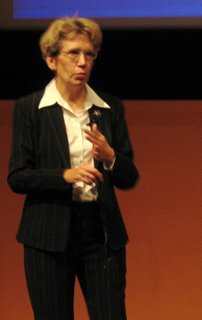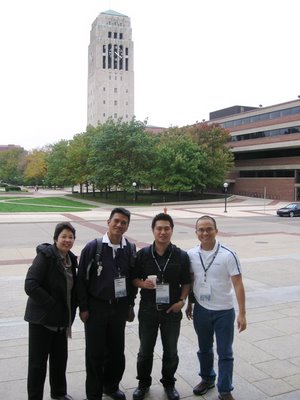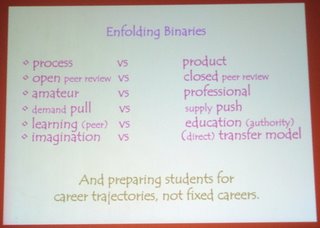Aklatang Pambata Online
I doubt if there are many in Philippine librarianship who have not heard of or read about Troy Lacsamana and Aklatang Pambata.ASLP online
The blog of the Association of Special Libraries of the Philippines (ASLP) is hosted by Arnold Zafra, who seems to be doing it pro bono.
Basa is the Tagalog word for "read." It's interesting that the driving force behind BASA is not a librarian, but Fr. Ted Gonzales, SJ.EISI News
It used to be that Electronic Information Solutions, Inc. (EISI) relied more on a traditional website. Now its blog is its website.Filipino American Library Blog Spot
The Filipino American Library has a website, a MySpace account and a blog. Wow!What's New at the IRRI Library
The International Rice Research Institute (IRRI) library's blog is also available as a Bloglines blog, which actually came before the one on Blogger.PLAI-Southern Tagalog Region Librarians Council (STRLC)
Like the Philippine Librarians Association, Inc. (PLAI), PLAI-STRLC does not have a traditional website, but unlike PLAI, it has a blog and is actually using it to share conference presentations.PNU-LIS Updates
The PNU Library and Information Science Alumni Association (PNU-LISAA) hasn't been updated since December 2005, but now that Peachy Limpin is blogging again (from Australia!), maybe some new posts will be forthcoming.UP Library Bulletin
The official newsletter of the University of the Philippines Library System now has an online version. Perhaps other libraries will soon follow? =)Unfortunately, not all of these blogs are updated regularly. But thanks to Jenny Levine and FeedBurner, I've put together a page on Institutions that will be updated whenever any of the blogs above are updated. Alternatively, you can also subscribe to the RSS feed.
Category: Biblioblogosphere



 In "Disciplines, Documents, and Data: Convergence and Divergence in the Scholarly Information Infrastructure,"
In "Disciplines, Documents, and Data: Convergence and Divergence in the Scholarly Information Infrastructure," 
 In "Learning Reconceived for the Networked Age," John Seely Brown (JSB) started by discussing "enfolding binaries" and "preparing students for career trajectories, not fixed careers" (see photo below).
In "Learning Reconceived for the Networked Age," John Seely Brown (JSB) started by discussing "enfolding binaries" and "preparing students for career trajectories, not fixed careers" (see photo below).


